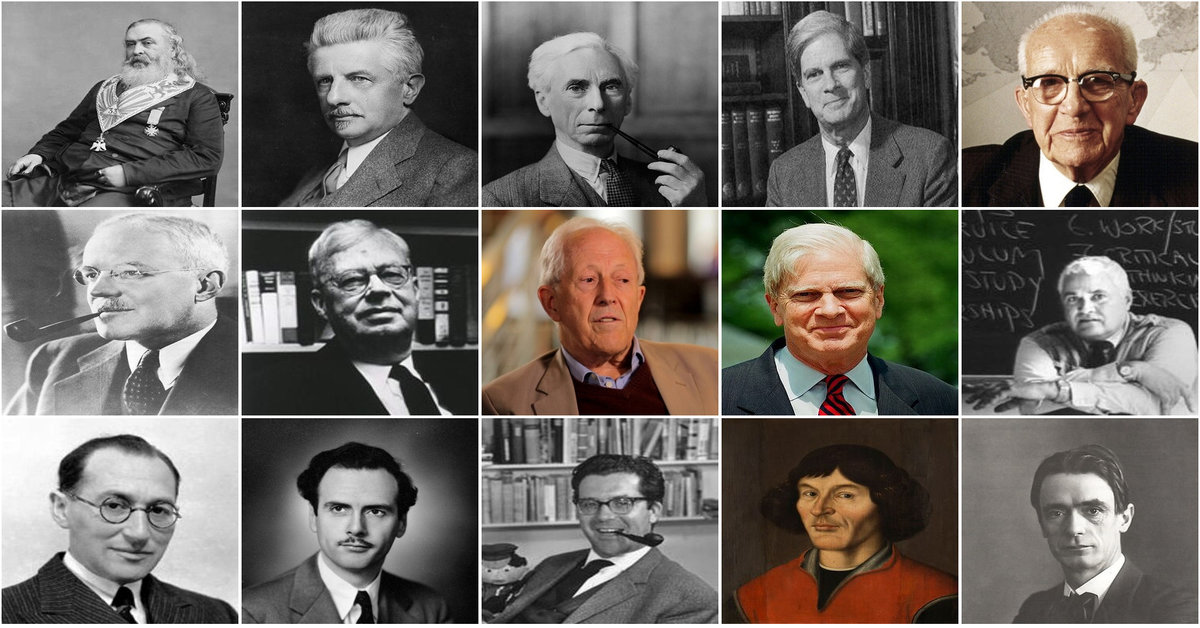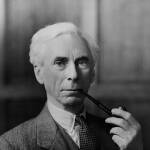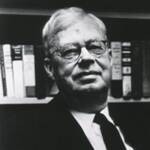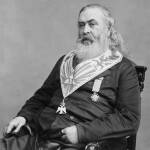Intellectual Reference Point Restoration

Biographies


Bertrand Arthur William Russell, 3rd Earl Russell (18 May 1872 – 2 February 1970) was a British philosopher, logician, mathematician, and public intellectual. He had influence on mathematics, logic, set theory, and various areas of analytic philosophy.
Wikipedia contributors.


Lawrence Kelso Frank (December 6, 1890 – September 23, 1968) was an American social scientist, administrator, and parent educator, particularly known as vice-president of the Josiah Macy Jr. Foundation and together with Frank Fremont-Smith initiator of the Macy conferences. 2


James Hadley Billington (June 1, 1929 – November 20, 2018) was an American academic and author who taught history at Harvard and Princeton before serving for 42 years as CEO of four federal cultural institutions. He served as the 13th Librarian of Congress after being nominated by President Ronald Reagan in 1987, and his appointment was approved unanimously by the U.S. Senate. He retired as Librarian on September 30, 2015.
https://en.wikipedia.org/wiki/James_H._Billington


Carl Edward Sagan (November 9, 1934 – December 20, 1996) was an American astronomer and astrochemist and a highly successful popularizer of several natural sciences. He pioneered exobiology and promoted the Search for Extra-Terrestrial Intelligence (SETI).
https://en.wikipedia.org/wiki/Carl_Sagan


Albert Pike (December 29, 1809 – April 2, 1891) was an American author, poet, orator, editor, lawyer, jurist and Confederate States Army general who served as an associate justice of the Arkansas Supreme Court in exile from 1864 to 1865. He had previously served as a senior officer of the Confederate States Army, commanding the District of Indian Territory in the Trans-Mississippi Theater. A prominent member of the Freemasons, Pike served as the Sovereign Grand Commander of the Supreme Council, Scottish Rite, Southern Jurisdiction from 1859 to 1891.


Leroy Fletcher Prouty (January 24, 1917 – June 5, 2001)[1] served as Chief of Special Operations for the Joint Chiefs of Staff under President John F. Kennedy. A colonel in the United States Air Force, he retired from military service to become a bank executive. He subsequently became a critic of U.S. foreign policy, particularly the covert activities of the Central Intelligence Agency (CIA), which he believed was working on behalf of a secret world elite.